A mission over a small island in the Pacific during WWII that could have had historic consequences
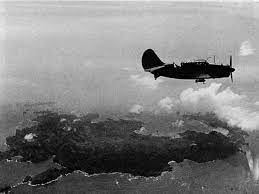
There were many heroes during WWII, heroes forged out of necessity, instinct, a need for self-preservation and to protect their fellow servicemen.
And just as conversely there were those who survived by sheer luck where others perished, a bullet dodged, a seat selected in a section of a tank that escapes the blast of a bombing where the others did not, or a plane crash miraculously walked away from.
In September 1944, heroism came in the form of one soldier who risked his life to save those of his comrades as their fatally strafed plane plunged towards the earth.
On this fateful day, the crew of 3, the pilot, turret gunner, and radioman, were on a bombing mission over Japanese occupied Chichijima, a small island in the Pacific Ocean. Their task was to destroy the Japanese radio communications towers along with the other planes in the squadron, and the Grumman TBF Avenger aircraft they were in was ideally suited for the mission due to its load capacity to carry torpedo bombs.
All the crew were young men, experienced soldiers as only a brutal war can instill experience in the young in such a short space of time.
They had been flying before the break of dawn and were closing in on their objectives.
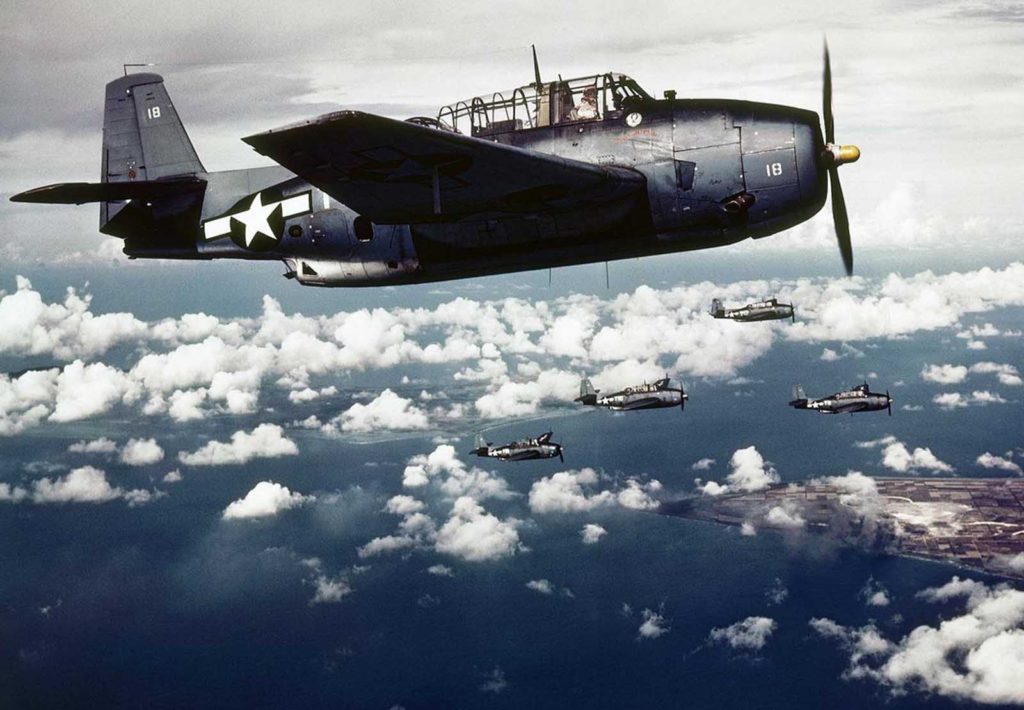
Ignoring the cacophonous sounds of explosions as the enemy attempted to blow them out of the sky, they counted down the minutes to when they would be dropping their payload, eyes glued to their instruments, hands steady on the controls even as the plane was rocked from side to side.
The time seemed to stretch on forever, the Japanese artillery getting closer, the explosions louder, the targets appearing further away.
And then they were hit. But they weren’t the only ones.
Smoke and flames billowed from a plane close to them, and down it went, spiraling crazily into enemy territory, their fates sealed if they survived the crash landing.
The young pilot instinctively realized that their plane, too, could soon be following that doomed aircraft. His first thought was for the survival of his crew, his second was to complete the mission, despite the risk to himself.
With black, acrid smoke billowing into the cockpit, the 20-year-old pilot and his crew launched the 500-pound torpedoes as soon as they were close enough, obliterating their target and severing the vital lines of communications of the Japanese. Mission completed, they turned back out to sea, limping like an injured bird trying to stay aloft, aware that it was safer to crash into the open sea and await rescue rather than fall into the waiting gun-toting arms of the enemy.
But they had left it too late. The stricken plane was going down. Fast.
Hastily donning their parachutes, the three airmen attempted to escape the crumbling, burning wreckage. One airman was destined to die before he could leap clear as the aircraft slammed into the ocean, disintegrating on impact.
Of the two who bailed out just in time, only one parachute fluttered open.
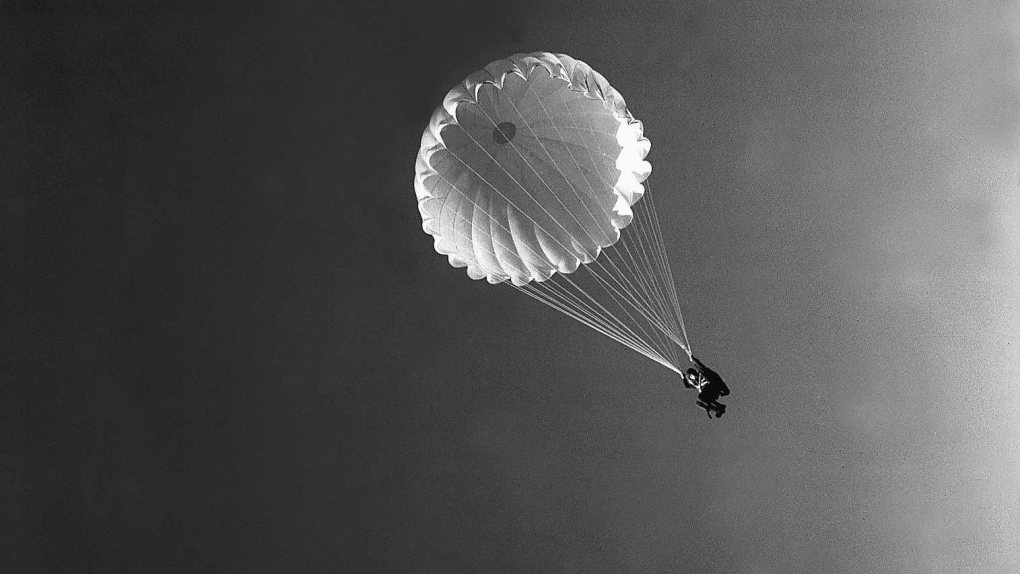
On exiting the disintegrating aircraft, the young pilot cracked his skull on the tail of the plane, ripping his parachute, but somehow staying aloft as his compatriot plummeted past him to his death.
Dazed, bleeding, he struggled to retain control as the roiling waves beneath rushed to embrace him. The splashdown was brutal, but he was alive. But for how long?
His splashdown didn’t go unnoticed by the Japanese and their gunboats zoomed in to capture him.
Seeing one of their comrades in danger, the other US airplanes provided cover for the next few hours, strafing any Japanese vessel that came too close. They were determined to rescue him, the Japanese were determined to capture him.
It was a standoff, with nowhere for airplanes to land and the enemy gunboats held at bay by a continuous barrage of bullets.
All the young pilot could do, floating vulnerably for hours, vomiting, dizzy from the blow to his head, was wait, either to be rescued or captured and tortured by the enemy.
The wait came to an end when a large shape emerged from the depths beneath him, the submarine USS Finback coming to his rescue, finally ending his torturous ordeal.
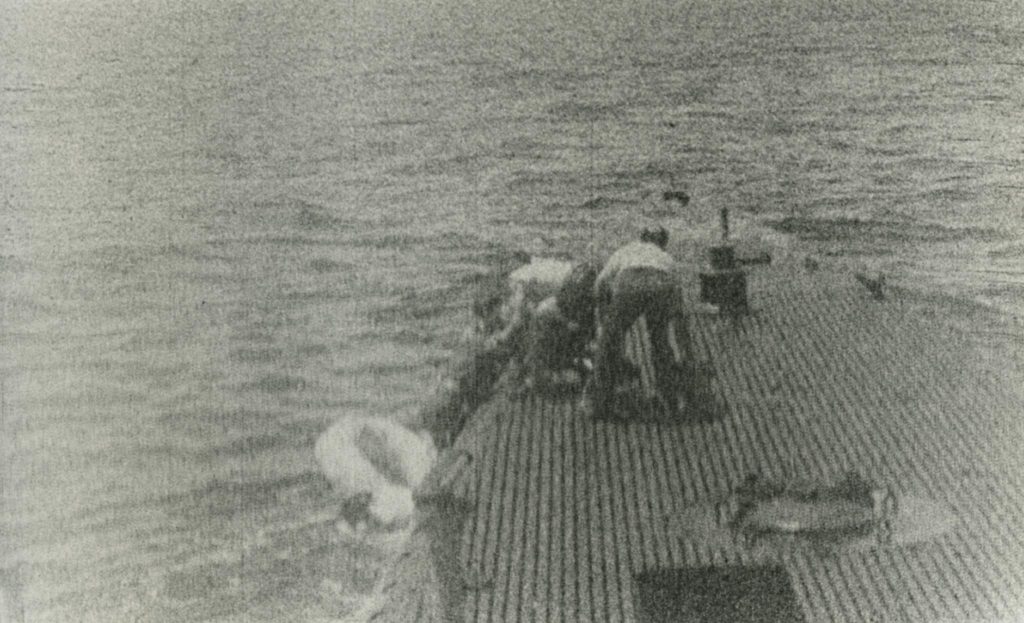
He was going home, but that day several planes had been shot down and the crew, captured by the Japanese, would not be.
Their fate was to be gruesome in the extreme but the details were not to be released until decades later, so appalling would they have been to the families and loved ones left behind.
Of the 9 airmen shot down that day, the 8 who were captured, were tortured, beheaded, bayonetted, and some were even cannibalized. None survived.
The true horrors and details were so shocking that the Japanese generals who undertook these heinous atrocities, not out of hunger but out of scorn for the enemy, were hunted down and brought to justice years later.
The 9th airmen, the only survivor of the fateful mission, was a hero that day, risking his own life to complete his mission, surviving more by luck than design.
That surviving airman was George HW. Bush, the future President of the United States of America.
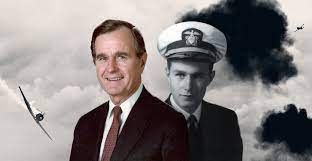
If, like his compatriot onboard the stricken Avenger aircraft, his parachute had failed to open, who knows how the future may have unfolded, how the destiny of a country could have been reshaped…
